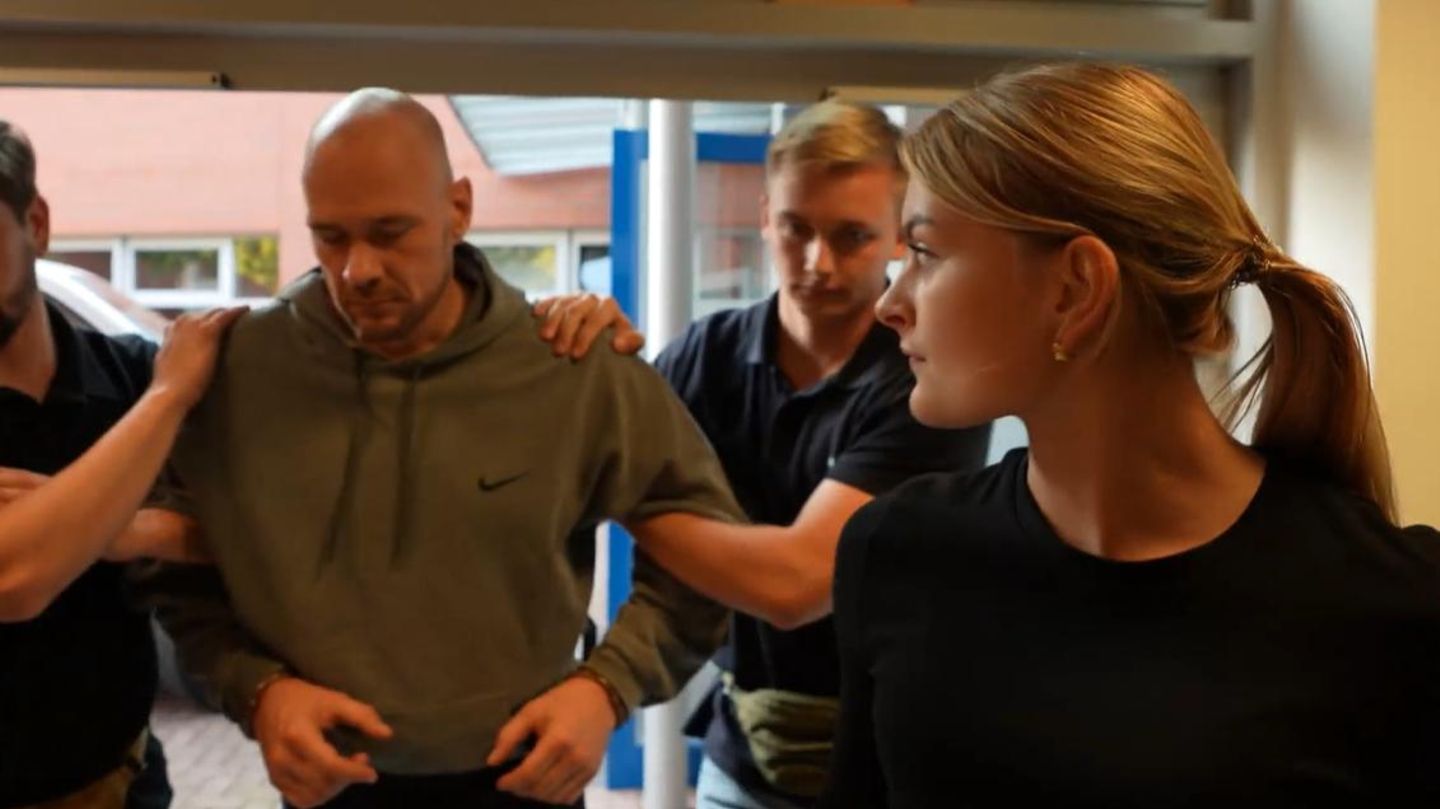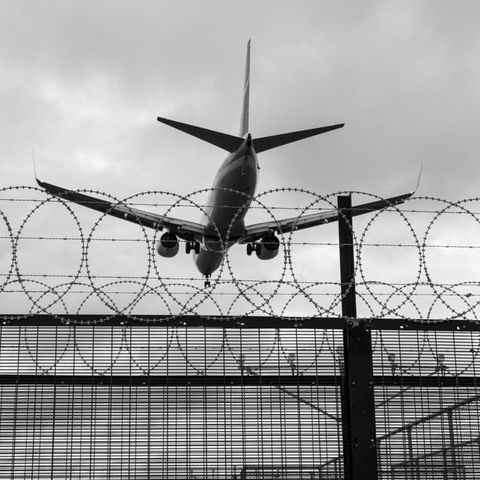migration
Young policewoman: “There is no deportation at any price”
Copy the current link
It is said that deportation is often cruel and inhumane. Here, two young federal police officers explain why they voluntarily help to take people away from Germany.
Two young federal police officers, Leonie and Cedric (they prefer to keep their last names to themselves), have decided to provide insights into their everyday lives as “air escorts” – their job as deportation officers. Her head of training, Jochen, also agreed star available as a conversation partner. “Many citizens have a false impression of how returns actually work and the high demands placed on the officers who carry them out,” says Leonie. For the 23-year-old officer and her colleague of the same age, going out in public is not without danger, because anyone who becomes known as a “deportation assistant” puts themselves at personal risk.
Deportation: Police cars have already been tampered with in protest
In the past, federal police officers have been visited at their private addresses and threatened, for example because those affected did not agree to the deportation of a family member. It also happened that wheel nuts on company vehicles were loosened to protest against deportations – a form of protest that can cost lives. The majority of civil servants therefore only tell their closest family and friends about their everyday work. “A lot of what happens during a repatriation therefore happens beyond public perception,” says Cedric. What most citizens don’t know is that not everyone is allowed to carry out deportations.
“The basic requirements for the accompanying officers are a particularly high level of empathy and a very good knowledge of English,” says Jochen, training manager for the special training for air personal attendants. “Leaders from their own departments decide on this initial preselection.” Only particularly suitable colleagues are then allowed to attend the further training course.
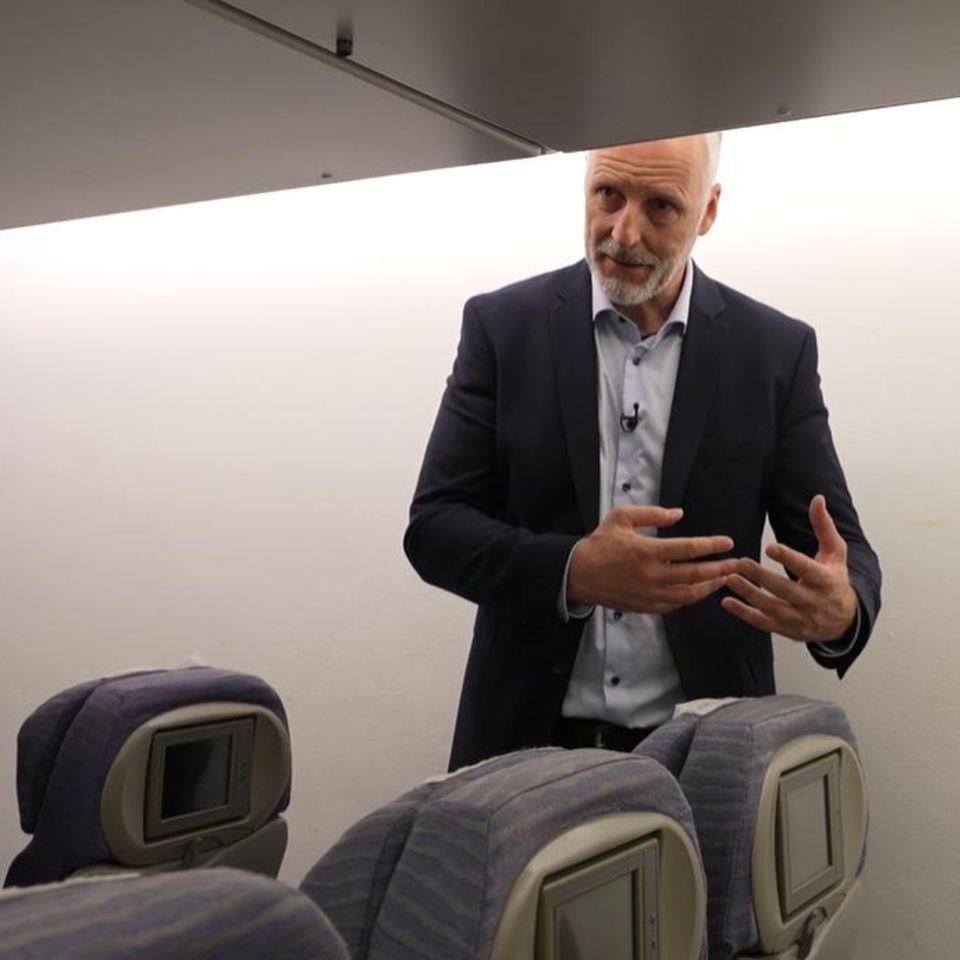
The course lasts three weeks. “Many people in my personal circle didn’t even know that we receive special training when we accompany repatriations,” says Leonie. She has been with the federal police in Hamburg for two years – usually on patrol at the main train station or to provide support in St. Pauli or at football games. What drives her: “I want to make people’s return to their home country as pleasant as possible.” Federal police officer Cedric, also 23, has his office at Frankfurt Airport. “In addition to controlling entry, controlled and sometimes accompanied departure from Germany is also one of the tasks of the federal police,” says Cedric. For this reason he decided to pursue further training.
I want to make people’s return to their home country as pleasant as possible.
When the wave of refugees began in 2015, there were around 600 of these specially trained federal police officers nationwide. There are now more than 2,000. “The need will remain high,” says training manager Jochen. Around 15 people are trained per course. In addition to federal police officers, there are also external participants, such as employees of the central immigration authorities, but also police officers from federal states and other European countries. There are two police officers from Italy in Leonie and Cedric’s group.
What is striking is that some of the people on the course have a migration history themselves, for example roots in Afghanistan or Sri Lanka. “These colleagues naturally have invaluable language and cultural knowledge that can help to de-escalate situations in such an operation,” says training manager Jochen. And de-escalation is the top priority: “It is human and understandable that those being returned find themselves in an exceptional situation and react emotionally accordingly.” In around 80 percent of cases, however, officers are able to calm the heated situation with words alone. “As soon as you look the person being returned in the eyes and treat them very calmly and empathetically, in most cases everything is fine,” says Jochen. Anyone who cannot deal humanely with those being deported must leave the course.
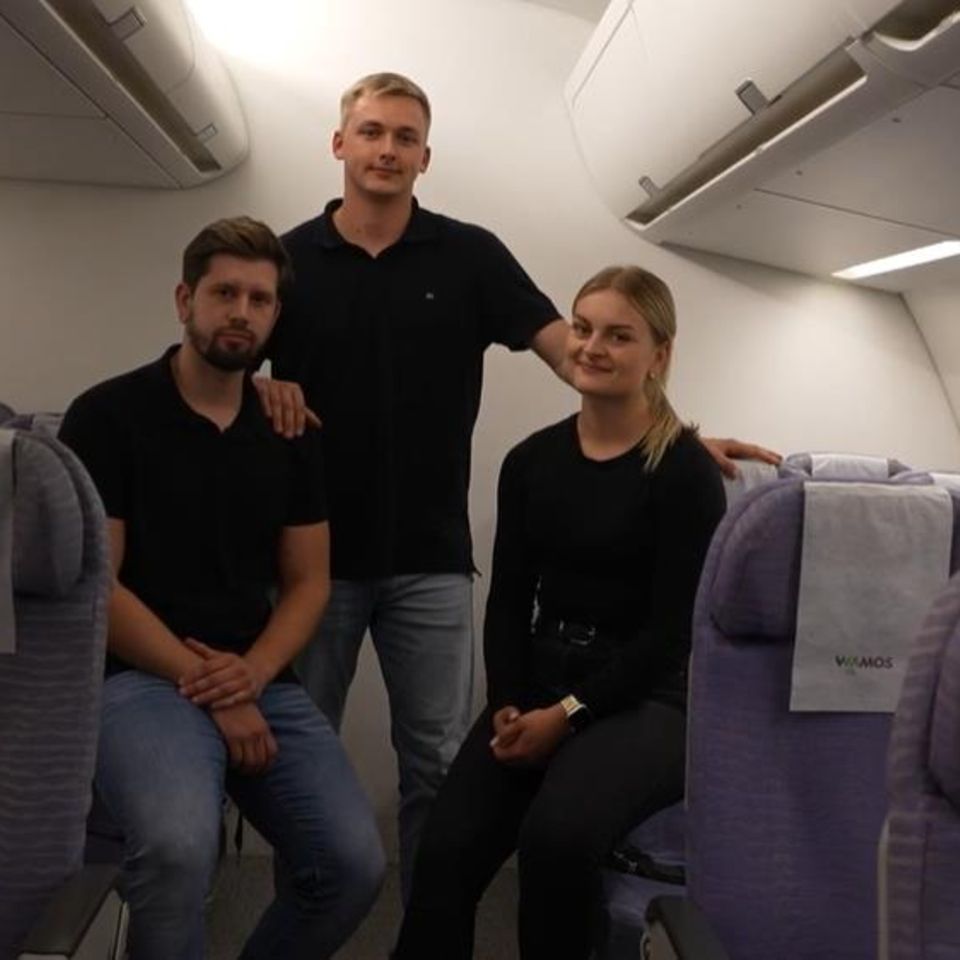
An important part of the training is therefore on intercultural competence and communication: What differences are there in terms of body language or the volume of the voice? “Something that seems rude and threatening in Germany can be completely normal in other parts of the world,” says federal police officer Cedric. “We explain to our counterparts all the steps we take together. If, for example, we have to restrain someone because they are resisting, we explain to the person that we are doing this for their own safety and to prevent possible injuries.” Colleague Leonie adds: “There is no deportation at any price. The well-being of those being returned comes above all else.”
I can understand other people’s desperation.
The desperation of those affected can be understood on a human level. The escorts are also prepared for this in role-playing games, and one of the trainers then takes on the role of the deportee. “Some defend themselves with their hands and feet, use violence and all available bodily fluids against the officers and those around them,” says Leonie. Pilots of airliners would sometimes refuse to take them with them. It also happens again and again that passengers traveling on scheduled flights want to prevent deportation because they feel sorry for the person being deported. “We then explain to people that you won’t just be deported like that: in all cases there have been one or more requests to leave Germany voluntarily,” said the young police officer. Before that, an authority made the decision. Usually a court still checks this. However, if voluntary action does not work, repatriation by the Federal Police is the very last possible step. “Only then will the obligation to leave the country be implemented by being accompanied; there is no arbitrariness involved on our part. Many citizens don’t know that.”
Since the death of a deportee, the procedure has been completely revised
The only death to date occurred during a repatriation in 1999. Sudanese Aamir Ageeb had resisted strongly during the flight and was forced with his head between his knees by the accompanying police officers, blocking his airway and causing him to suffocate. “This terrible incident gave rise to a complete overhaul of the repatriation procedure and the development of new techniques,” said training manager Jochen.
“We teach the officers to work with techniques that control the deportee’s limbs so that the other person has no opportunity to use their own muscle strength against our officers.” As a rule, two to four officers form a so-called “escort team” that accompanies a person being returned. “Two colleagues each secure one side of the person, the third is primarily responsible for communication with the person and secures the person from behind,” explains federal police officer Cedric. If the resistance is particularly great, a fourth colleague would be added.
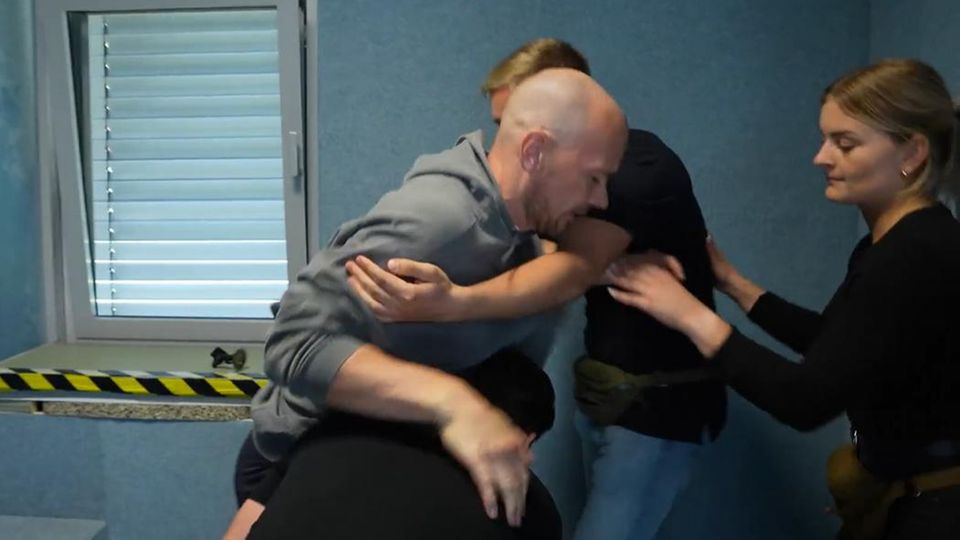
“When we go on an accompanied trip, we travel in civilian clothes,” says Leonie. “We don’t have our service weapons with us abroad and we only have a few other command and operational resources.” In addition to your own physical strength, a spit protection hood, plastic handcuffs or a specially developed “tether” are used. The latter is closed on the back using a robust lock; the hands of the person being returned are fixed to flexibly adjustable loops and can be released up to a length of around 50 centimeters. In this way, the affected person can go to the toilet and eat and drink independently.
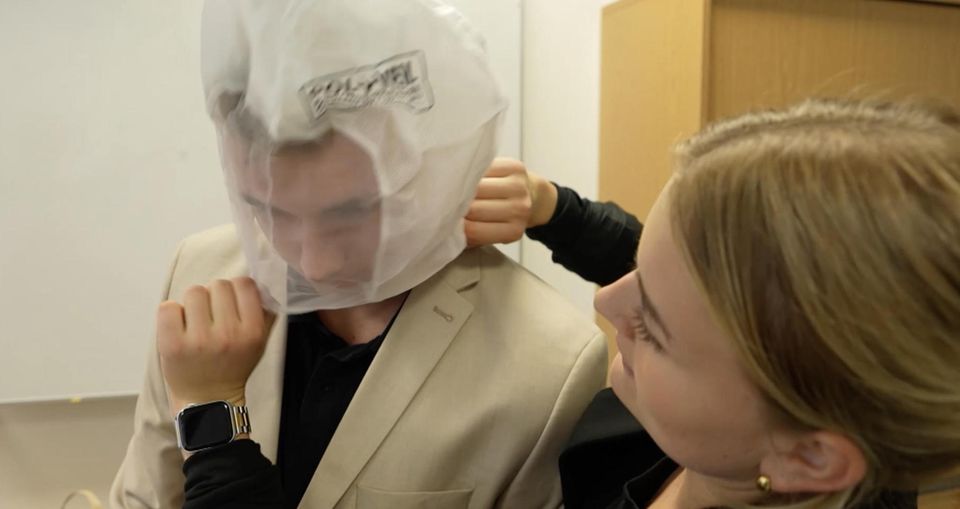
In order to keep the risk of injury as low as possible, try to use as much security as possible. “If you have the will, you can make a weapon out of almost anything and use it against yourself or others: toilet mirrors, toilet brushes, cell phone cases or tempered glass films from your cell phone. We have even found sewn-in razor blades.” There is therefore a replica detention facility on the training site, including a cell, reception area and interrogation room. Instructors hide needles and other potentially dangerous items that the trainee air attendants must find and remove.
“A telephone receiver with a cable can be life-threatening and ultimately the reason for an aborted repatriation.” There is also a replica of an aircraft cabin and a lock in the security area. “When boarding the plane, the escort teams are required to particularly protect the head of the person being returned,” says Jochen. The cramped conditions inside the aircraft pose a risk of injuring yourself, for example when sitting down on the luggage racks. The people accompanying the air are also made aware of this.
The idea that returns are brutal and full of violence is not true. “We try to solve everything through communication as long as we can.”
Transparency note: The author is a reporter for the RTL media group, which also includes stern.
Source: Stern
I have been working in the news industry for over 6 years, first as a reporter and now as an editor. I have covered politics extensively, and my work has appeared in major newspapers and online news outlets around the world. In addition to my writing, I also contribute regularly to 24 Hours World.

